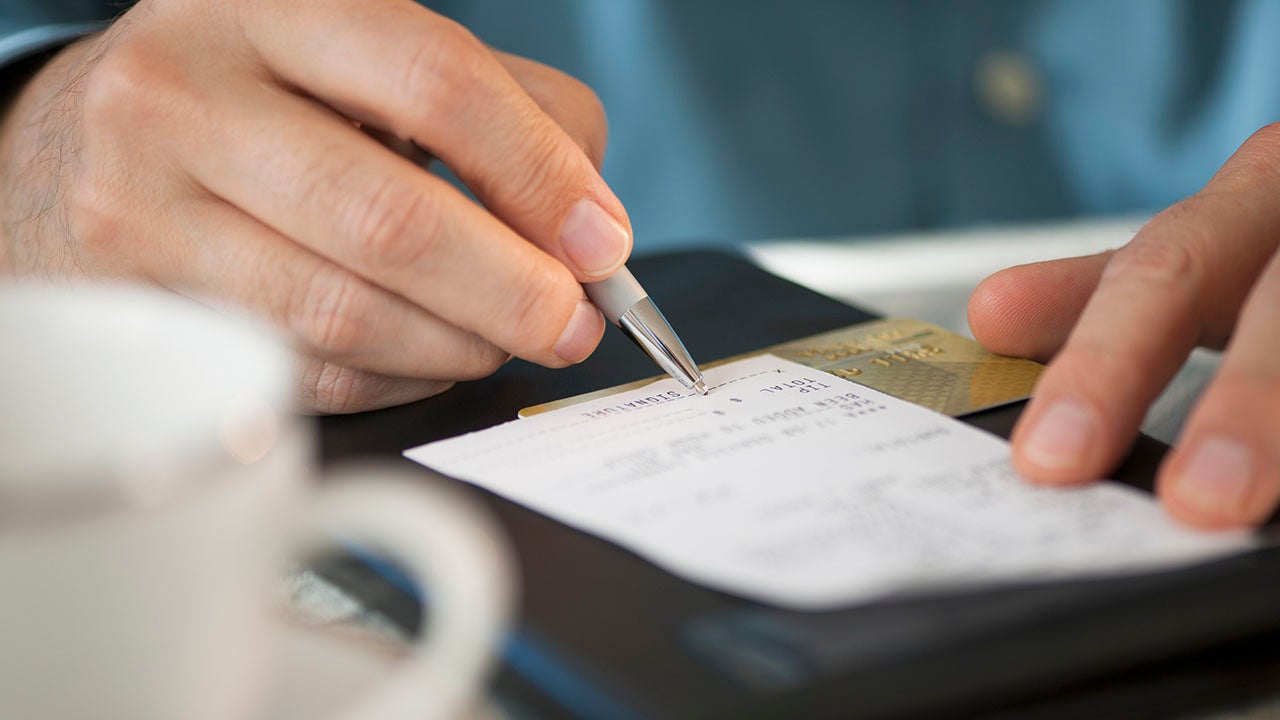Can a bank seize funds from my checking account for my credit card payment?

Key takeaways
- Under normal circumstances, a bank cannot take money from your checking account to pay off your credit card debt.
- There are exceptions to this rule, including if a bank gets a court judgment against you.
- If you are at risk of falling behind on card payments, negotiate with the issuer and look into other financial options so your credit score doesn’t take a hit.
If you can’t pay your credit card bill, a range of unfortunate circumstances can come into play. Not only can late or missed credit card payments cause considerable damage to your credit score, but you will likely see late fees tacked onto your account. Your credit card company can also charge you a higher penalty interest rate until you get your account back in good standing.
That said, banks lack the authority to force you to pay your credit card bill, even if you have funds in a connected checking account to cover it.
Can a bank take money from your account without permission?
Credit card companies cannot take money out of your checking account without your permission, even if both accounts are from the same bank. If you have a Chase credit card and checking account and you are late on your credit card payment, for example, Chase cannot seize the funds in your checking account to cover it.
This is good news for consumers who want to maintain control over their funds. However, banks may get the authority to seize funds from a bank account based on certain legal proceedings. We’ll go over how that works in more detail below.
Banks cannot use offset for credit card payments
The Fair Credit Billing Act (FCBA), which protects consumers from unfair credit card billing practices, dictates the rules banks must follow when it comes to the seizure of funds from a bank account.
The FCBA states the law clearly in its text:
A card issuer may not take any action to offset a cardholder’s indebtedness arising in connection with a consumer credit transaction under the relevant credit card plan against funds of the cardholder held on deposit with the card issuer.
The law recognizes that using an offset provision to go after your credit card debt would give the bank some leverage against you.
However, there are some exceptions to this rule. For example, you may have authorized your bank to pay off your credit card debt using the money in your checking account through an automatic bill payment arrangement. In that case, your bill is paid on your behalf unless you stop the automatic payment before it goes through.
Court order could allow bank to offset
There are other circumstances that would allow a bank to take money from your bank account to offset credit card debt. For one, the bank could go to court and get a judgment against you. If the judgment doesn’t rule out the offset approach, and there are no state or other laws that prohibit this action, the bank could take your money for the credit card debt.
Keep in mind: The location of a card issuer’s headquarters determines what state laws it must follow. So, just because your state might have laws to prevent this approach, doesn’t mean your issuer has to follow them.
The Consumer Financial Protection Bureau’s official interpretation of the FCBA law regarding offset in this case says the following:
If the card issuer obtains a judgment against the cardholder, and if state and other applicable law and the terms of the judgment do not so prohibit, the card issuer may offset the indebtedness against the cardholder’s deposit account.
Beyond that, a card issuer cannot routinely include terms in its credit card agreement that give it a security interest in a credit card consumer’s bank accounts. For the security interest to apply, you should have agreed to it as a condition for the credit card account or to receive more favorable terms for the account. The issuer should make a separate disclosure of the security interest provision (apart from the regular terms and conditions of the card agreement), and you should have signed off on it.
And in case the card issuer closes your account, and you continue to add on credit card debt after the closing, it could take your money to pay for any charges you made after the closing (but not toward the amount outstanding before the closure).
If you owe a bank money, can they take it from another bank account?
If you have credit card debt with a bank but you have money deposited with another institution, the same rules still apply. Your credit card issuer cannot legally seize funds from any bank account you have unless an exception (like a court order or judgment) applies.
What to do if you fall behind on credit card debt
It’s never a good idea to fall behind on your credit card payments, even when funds are tight. You could be charged a late payment fee by your card issuer, who can also increase your card’s interest rate. If you are more than 30 days late, your issuer could report the lapse to credit bureaus, and your credit score could take a hit.
At a certain stage of delinquency (typically six months), your issuer could write off your debt or sell it off. If your debt is charged off in this fashion, it will tarnish your credit score for up to seven years.
But unfortunately, paying your credit card bills on time isn’t always an option for those experiencing financial hardship. If you’re unable to make your card payments, you should start by doing the following:
- Call your card issuer to see if you can negotiate. Ask customer service about their financial hardship programs. You may be able to work out a deal with lower monthly payments, a lower interest rate or both, but you’ll never know unless you try.
- Consider transferring your debt. See if you can transfer the debt to a balance transfer credit card with a promotional 0 percent APR offer. That would buy you some time to sort out your financial situation while avoiding interest payments. A personal loan may also offer a lower interest rate.
- Work with a certified credit counselor or another financial professional. A credit counselor from a nonprofit organization can help you look at your debt holistically and come up with a plan to manage it.
The bottom line
If you have a banking relationship with your card issuer and have fallen behind on your card payments, the bank typically cannot seize the money you have on deposit to pay off your credit card debt without a court judgment.
Even though this protection against offset is a benefit, you should aim to sort out the situation with the card issuer if you’re on the verge of falling behind on payments. There could be consequences to your credit score if you fail to act.
Why we ask for feedback Your feedback helps us improve our content and services. It takes less than a minute to complete.
Your responses are anonymous and will only be used for improving our website.









